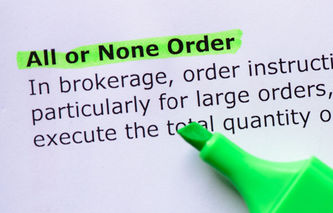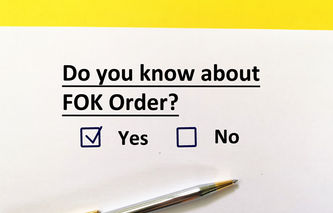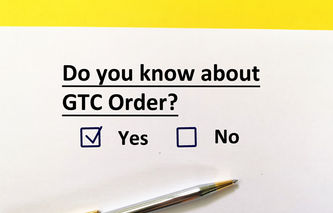Definition
The term limit order refers to instructions sent to a broker to buy or sell securities at a specific price or better. Since a limit order is not a market order, there is no guarantee the transaction will occur.
Explanation
Limit orders are typically used by investors to control the price paid, or received, when buying or selling securities such as stocks. Since the price specified in the limit order is oftentimes different than the prevailing market price, there is no guarantee the transaction will occur if the price of the security does not pass through the limit price.
Limit orders are oftentimes used in the context of buying or selling shares of stock. Generally, investors can place two types of these orders:
Buy Limit Order: instructs the broker not to pay more than the specified price per share. For example, an investor may place a buy limit order for $28.00 per share when the prevailing market price is $30.00 per share. If the market price of the security drops to $28.00, then the order will be executed.
Sell Limit Order: instructs the broker not to sell shares for less than the specified price per share. For example, an investor may place a sell limit order for $32.00 per share when the prevailing market price is $30.00 per share. If the market price of the security increases to $32.00, then the order will be executed.
If the price of the security does not reach or pass through the limit order price, the purchase or sale of the security will not occur. For this reason, limit orders are oftentimes combined with instructions that specify their duration. For example, a limit order may also be a day order or Good-Til-Canceled (GTC).






